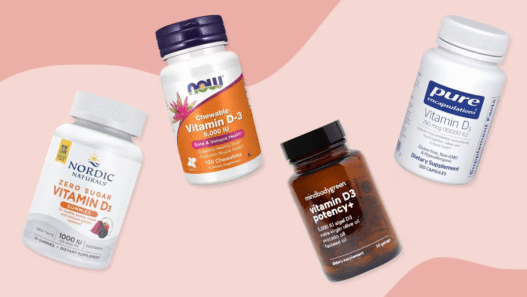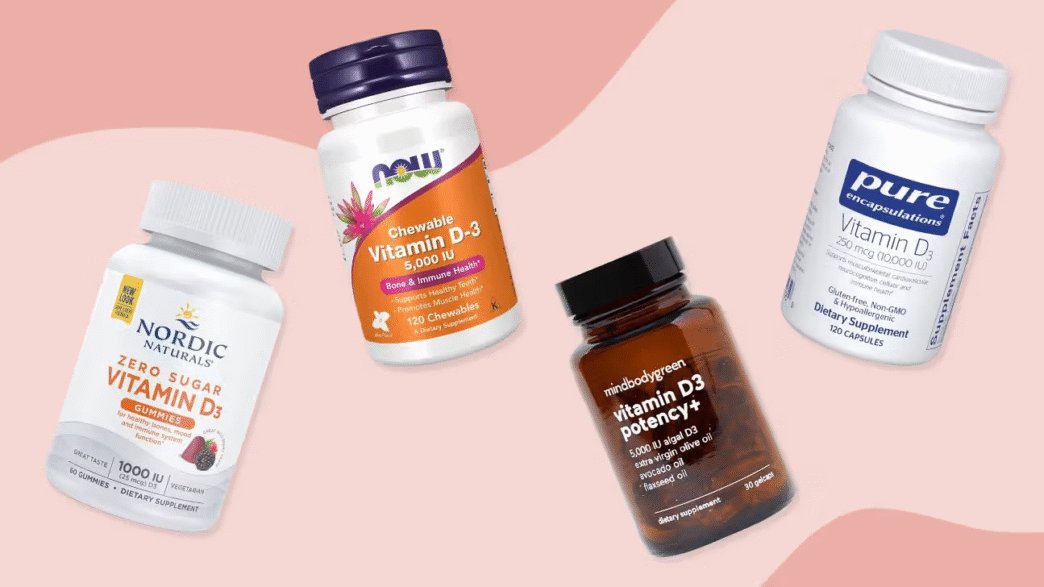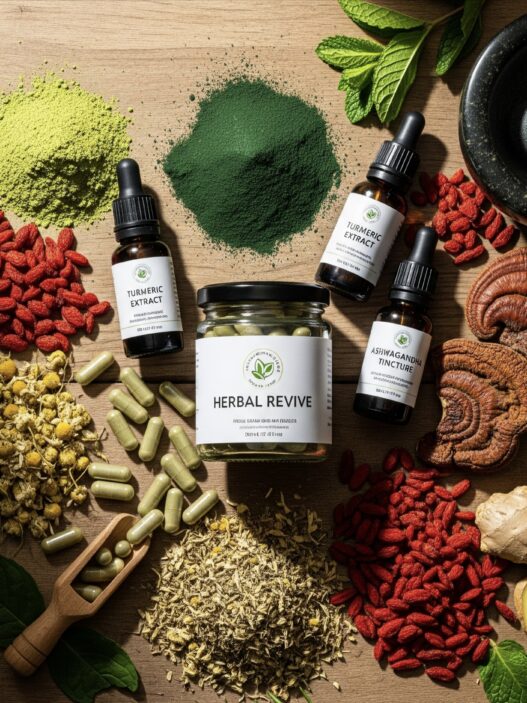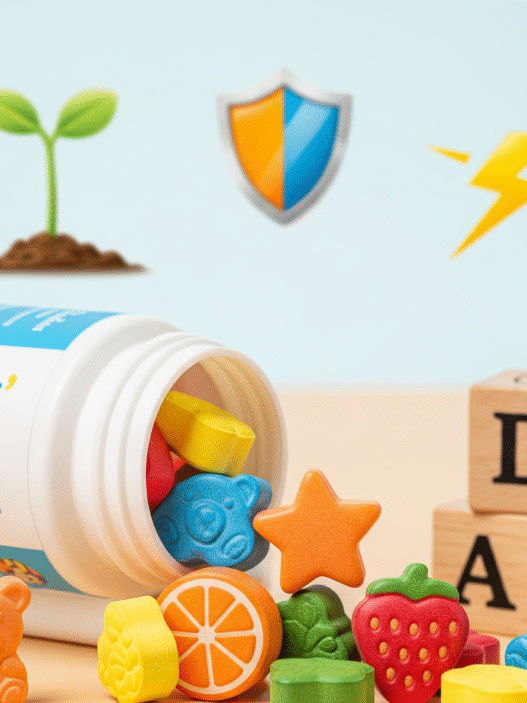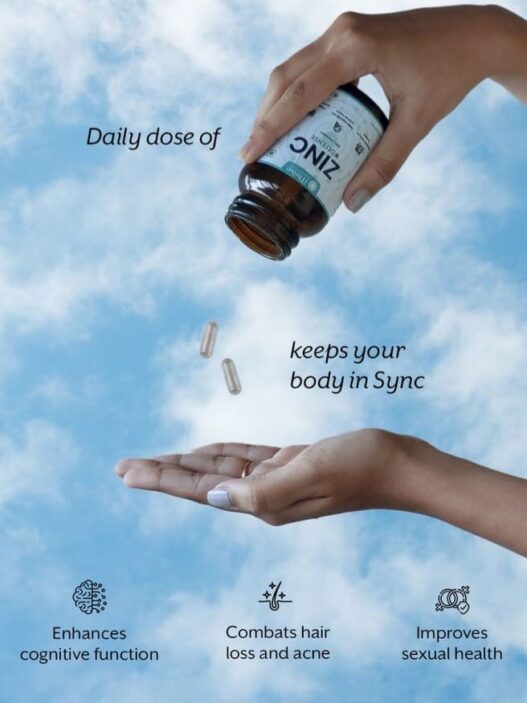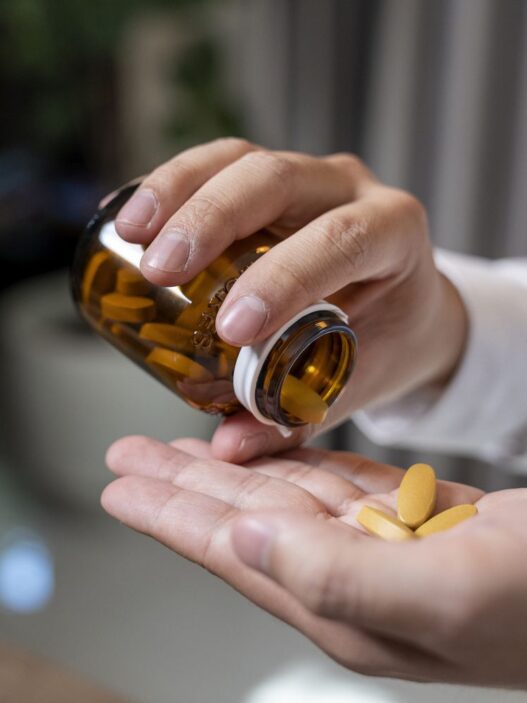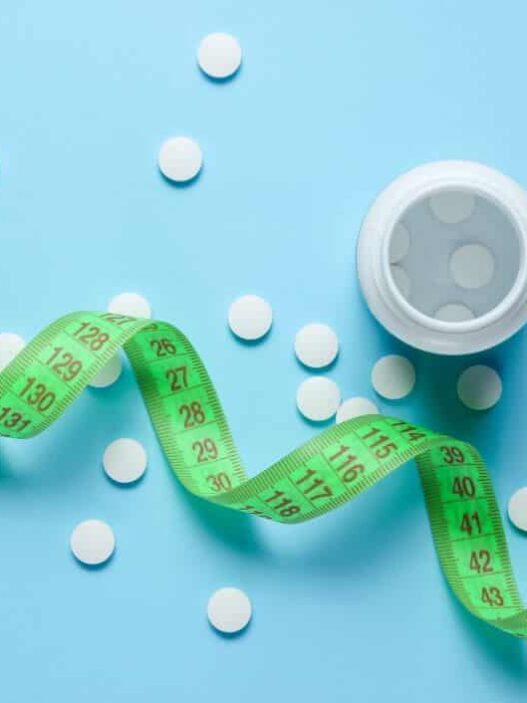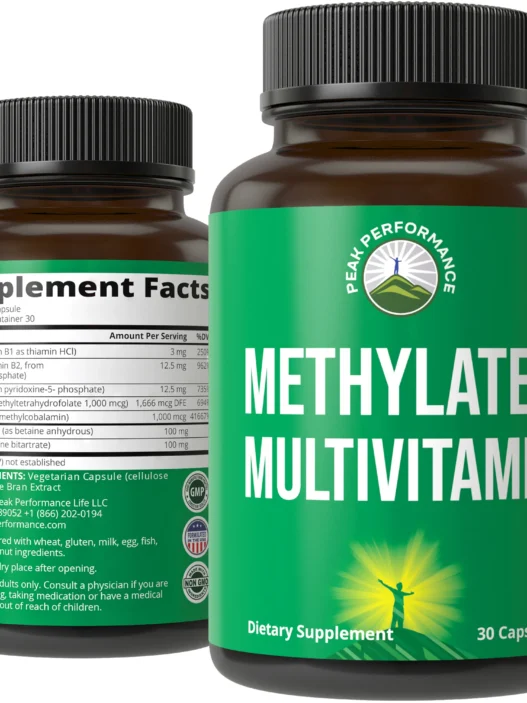Supplements provide a simple solution when natural sources are inadequate. There are numerous items on the market, making it difficult to make a decision. Some pills are strong, some are moderate, and some combine multiple minerals. This tutorial will explain how vitamin D works and how to choose the best vitamin D supplement for your health.
Vitamin D strengthens bones and allows the body to use calcium properly. It also strengthens the immune system and provides consistent energy. Many people lack it due to insufficient sunlight or a bad diet. Deficiency can cause fatigue, bone discomfort, and depression.
Why Vitamin D Is Important?
Vitamin D has a wide-ranging effect on the body. The most obvious involvement is in bone strength. It helps the body use calcium, preventing bones from losing mass or breaking too soon. Weak bones frequently indicate a lack of this vitamin. Strong bones rely on it every day.
- Bone and calcium use: Calcium flows through the body without vitamin D.
- Immune health: A balanced level assists the body in fighting colds and other diseases.
- Mood and energy: When vitamin D levels fall, many people feel fatigued or depleted. However, not everyone benefits from sunlight.
Good levels keep bones solid, increase protection against illness, and provide consistent energy for daily activities.
Signs You Might Need a Vitamin D Supplement
Vitamin D deficiency can manifest itself in a variety of ways. Some indicators arise quickly, while others develop slowly.
- Tired body and low energy: Many people feel exhausted throughout the day, even after resting.
- Bones are weak, leading to more fractures and longer recovery times.
- Weakness or pain in the muscles: Your legs, arms, or back can hurt without any reason.
- Depression or low energy may be caused by low mood during the cold season, which is less sunny.
These are signs that the body might be inadequate in vitamin D. A Proper supplement can build up the levels and give strength again.
Types of Vitamin D Supplements
Supplements come in a variety of forms, and each operates in its own way. Knowing these categories allows a person to determine what best suits their physique and everyday lifestyle.
Vitamin D2 Vs Vitamin D3
There are two primary types. Plants provide D2, but D3 is primarily obtained from animals and sunlight. According to research, D3 works better since the body absorbs it faster and maintains levels for more extended periods of time. Doctors frequently recommend D3 when a person requires more help.
Forms of Supplements
Supplements come in a variety of shapes. Capsules and pills are the most popular and portable options. Gummies have a sweet taste and are suitable for people who loathe tablets. Liquid drops are ideal for children and adults who have difficulty swallowing. Some powders blend with water or juice. They all work but it depends on comfort.
Dosage Options
Depending on age, diet, and health. The amounts vary. Others take a small dosage per day to stabilize themselves. Others use more serious drugs for one week or one month. Both approaches can be practical. The optimal plan is determined after consulting with a doctor.
How To Choose The Best Vitamin D Supplement?
Once you pay attention to several key points, it will be easy to choose between the best vitamin D pill and the best vitamin D supplement. Some decisions are more critical than others.
- Use D3 instead of D2 because it takes longer to work in the body and is more absorbed. Doctors often prescribe D3 unless there is a necessity for a plant-based option.
- Check dose levels; the requirement changes with age, nutrition, and daily habits. Many people prefer a modest dose per day; however, bigger doses may be administered under a physician’s supervision.
- Use tested products – reputable laboratories are of better quality and safer, so these labels will give more reassurance..
- Consider your food needs – people with vegan and gluten-free diets can have dishes made to their specifications. Price and brand name – a price and a famous brand are needed, but a renowned brand is more trustworthy. The two make the decision stronger.
Top Vitamin D Supplements
Some vitamin D supplements have garnered significant credibility. Here are three popular options for daily use.
Momentous Vitamin D3 (2000 and 5000 IU)
These capsules are available in two strengths and contain olive oil, which aids in the absorption of D3. They are NSF Sport certified, which ensures safety and cleanliness during testing. People appreciate the clear label and high quality. The 5000 IU version is not vegan, and it costs more than basic brands.

Thorne Vitamin D + K2 (liquid drops)
This liquid mixture combines D3, vitamin K2, and MCT oil. The dropper makes it easy to use, and the oil base promotes absorption. Many people find it easy to incorporate into their regular routines. Some people require time to acclimate to dosage drops.

Hum Nutrition Here Comes The Sun
Softgels formulated with vegan D3 derived from lichen. Small in size, easy to swallow, and combined with olive oil for optimal use. The cost is higher, but the vegan option makes it worthwhile for many.
Tips for Maximizing Vitamin D Absorption
When vitamin D is taken correctly, the body uses it more efficiently. A pill or drop works well with a meal that contains healthy fats. Sunlight also helps to boost levels, provided that time spent outside is safe and limited. Magnesium also plays an important role. This mineral promotes vitamin D’s proper function. Minor modifications, such as eating the correct foods, going outside for a time, and taking magnesium, can increase the value of each dose.
Potential Side Effects and Precautions
- Excess vitamin D will build up in the body and have health effects.
- There are isolated cases of renal stress or vitamin poisoning.
- Your doctor must be consulted before taking high-strength doses.
- Checks and appropriate medical advice ensure safe use.
Conclusion
Vitamin D helps build strong bones, maintains a consistent mood, and provides good immunity where diet or sunlight fails. Depending on their comfort level, people can use drops, tablets, or capsules. Seek the advice of a clinical practitioner.






